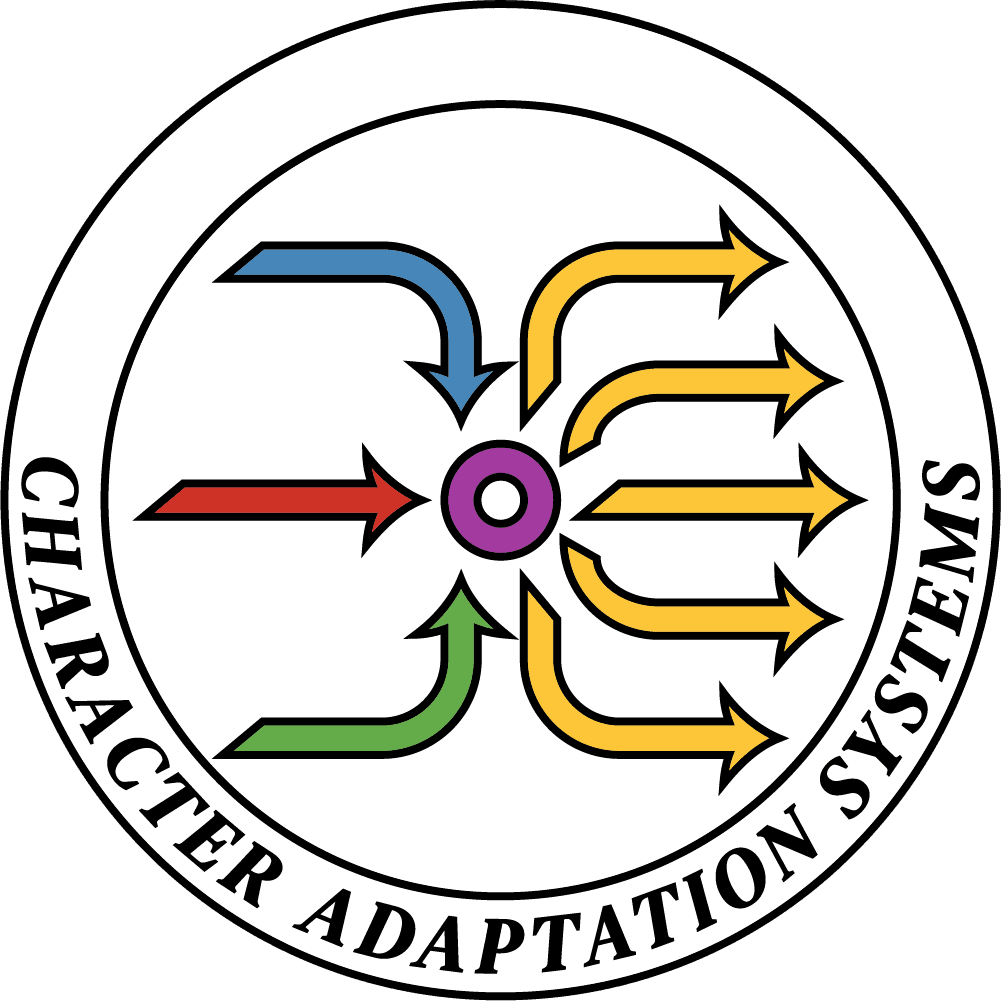Character Adaptation Systems Theory (CAST) is a UTOK model that organizes human personality into five key systems of adaptation. These systems integrate biological, developmental, and cultural factors to create a holistic view of character development across the lifespan.
Introduction
Character Adaptation Systems Theory (CAST) is one of the central ideas within the Unified Theory of Knowledge (UTOK) framework. It introduces a "New Big Five" that bridges personality theory with psychotherapy, offering an integrative metatheoretical model that connects different psychological paradigms. CAST serves as a holistic taxonomy for understanding how humans adapt across five systems of functioning, highlighting the importance of these systems in shaping individual character, especially in response to life’s stressors and opportunities.
The five systems in CAST are:
The Habit System:
This system is responsible for automatic behaviors, routines, and conditioned responses. It reflects the habitual patterns we develop over time, driven by reinforcement learning and environmental feedback.
The Experiential System:
The experiential system governs our emotional and sensory experiences, focusing on how we process feelings and perceptions. It emphasizes lived experiences, emotional processing, and the role of affect in guiding action.
The Relationship System:
Central to our social connections, this system organizes interpersonal dynamics. It reflects how individuals form, maintain, and navigate relationships, influenced by attachment styles and relational patterns developed throughout life.
The Defensive System:
This system activates in response to perceived threats or psychological discomfort. It includes mechanisms such as denial, repression, and projection, and is a cornerstone of understanding how individuals manage internal and external conflict.
The Justification System:
Unique to humans, this system organizes language-based reasoning and self-narrative construction. It allows individuals to justify their actions, values, and beliefs, linking personal identity with social and cultural norms.
Integration with Psychotherapy
CAST aligns with major psychotherapy paradigms (behavioral, cognitive, dynamic, and experiential therapies) by mapping them onto the five systems of adaptation. Each system corresponds to a particular focus in psychotherapy:
Behavioral therapies often emphasize the habit system, focusing on modifying learned responses.
Cognitive and existential therapies engage with the justification system, helping clients explore and reshape the narratives they use to explain their behaviors and beliefs.
Psychodynamic approaches typically focus on the defensive system, exploring unconscious patterns and defense mechanisms.
Experiential and emotion-focused therapies work through the experiential system, guiding individuals in processing and expressing emotional experiences.
Relational therapies prioritize the relationship system, helping individuals improve their interpersonal functioning and attachment dynamics.
Contextual Lines of Adaptation
CAST identifies three contextual lines that influence adaptation across these systems:
Bio-physiological Context: Grounded in biology, this line examines the role of genetics, neurobiology, and physical health in shaping character.
Learning and Developmental Context: Focuses on how early experiences, education, and developmental milestones influence one's character and capacity for adaptation.
Sociocultural Context: This considers the broader social, cultural, and environmental factors that affect adaptation, including societal expectations, cultural norms, and relational dynamics.
These contextual lines ensure that CAST is not just focused on the individual in isolation but considers the broader biological, developmental, and sociocultural environments that contribute to character formation and adaptation.
Relationship to McAdams’ New Big Five
CAST also connects to Dan McAdams' "New Big Five" personality framework, which views personality through the lenses of dispositional traits, characteristic adaptations, narrative identity, culture, and evolutionary context. CAST complements McAdams’ model by organizing characteristic adaptations into these five systems, offering a practical and integrative structure for both personality psychology and psychotherapeutic interventions.
Practical Applications
CAST has broad applications in both psychotherapy and personal development. By offering a clear map of the different systems of adaptation, clinicians can tailor interventions to target specific systems, depending on the client’s needs. For example:
When a client struggles with entrenched habits, interventions might focus on restructuring the habit system.
Clients dealing with unresolved emotional trauma would benefit from work focused on the experiential system and defensive system.
Individuals grappling with existential crises or identity issues may benefit from interventions that target the justification system, helping them reshape their self-narratives.
CAST also provides a framework for self-reflection, enabling individuals to understand their own character adaptations across these five systems. This self-awareness can lead to improved emotional intelligence, relationship dynamics, and personal growth.
Conclusion
Character Adaptation Systems Theory (CAST) represents a major advance in our understanding of human character, providing a metatheoretical framework that synthesizes biological, psychological, and sociocultural perspectives. By integrating disparate paradigms within psychology and psychotherapy, CAST offers both a map and a method for understanding the adaptive processes that shape human experience, development, and identity.





